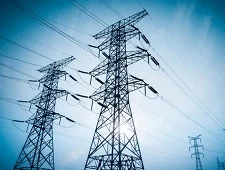US stablecoin regime still hampered by low liquidity - B2C2
24th July, 2025|Radi Khasawneh

The fast-emerging US stablecoin market is currently struggling with low liquidity, adding to the cost of using these cryptocurrencies, the US head of market-maker B2C2 has suggested.
In a post on Wednesday the firm’s US chief executive said the passing of the Guiding and Establishing National Innovation for US Stablecoins (GENIUS) Act through the US House of Representatives last week was only a step towards establishing stablecoins in the world's largest market.
“At present, stablecoin users and issuers are constrained by the market’s available liquidity,” Raazi (pictured) said in the commentary. “Many stablecoin users still pay the fees charged by crypto exchanges for fiat to stablecoin conversion. This leg of value transfer is also constrained by legacy payment networks, as money typically needs to be sent to the exchange via traditional (and relatively expensive) routes.
“Most businesses wishing to accept stablecoin payments want to be able to receive payments in many different coins but still settle in their preferred asset. For stablecoin usage to scale, businesses need a fast and cheap way to convert into their preferred stablecoins, as well as into fiat currency.”
Market-makers like B2C2 can facilitate transfers for clients, Raazi said, but the immediate impact of the legislation will be the emergence of new issuers of stablecoins.
“By setting conditions for banks and financial firms to issue stablecoins, the GENIUS Act creates a more favorable environment for new issuers,” he added. “Thus far, the market has been dominated by a few major players, although we expect new entrants with the potential for formidable scale. Money-centre banks are experimenting with stablecoins and deposit tokens, and some S&P 100 corporates are evaluating the benefits of issuing their own stablecoin.”
Also passing the US lower house last week was the Digital Asset Market Clarity Act (CLARITY Act), laying out the regulatory framework for different crypto securities.
“I strongly believe the US Commodity Futures Trading Commission should have exclusive jurisdiction over digital commodities,” Walt Lukken, president and chief executive of the FIA, said in an emailed statement.
"In particular, as I shared with the US Senate Agriculture Committee last week, the CFTC's principles-based regulations, innovation-forward mission, robust customer protections, strong enforcement and effective cross border framework make it well-suited for this key oversight role.
"The digital assets industry and its customers deserve a sound regulatory framework. The approval of these key bills is an important step in providing legal and regulatory certainty."


